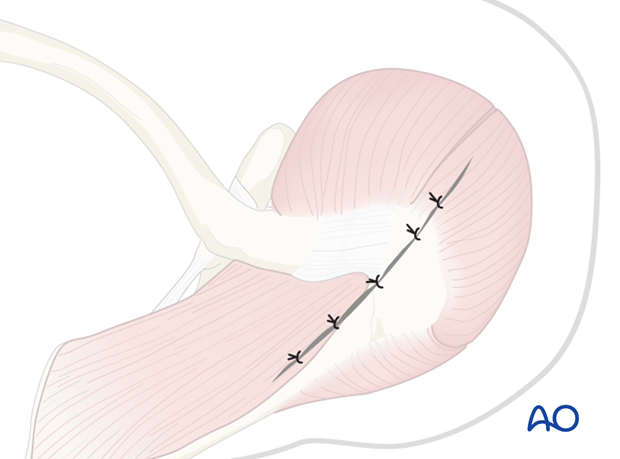Superior scapular approach
1. Introduction
The superior extension of the anterior
deltoid split can be used for treatments of simple acromion fractures and nailing of proximal humeral fractures.
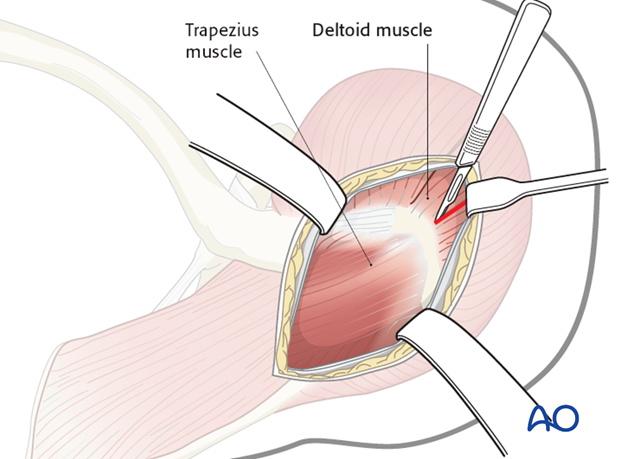
This incision is placed in the acromial part (2) of the deltoid muscle, as illustrated.
If needed this approach may be extended inferiorly to the standard deltoid split.

2. Neurovascular structures
The course of the axillary nerve must be kept in mind if the approach is extended inferiorly.
Note: The anterior motor branch of the axillary nerve crosses the humerus horizontally about 6 cm distal to the lateral border of the acromion. This distance does not significantly vary in individuals of the same size and is a reliable guide.
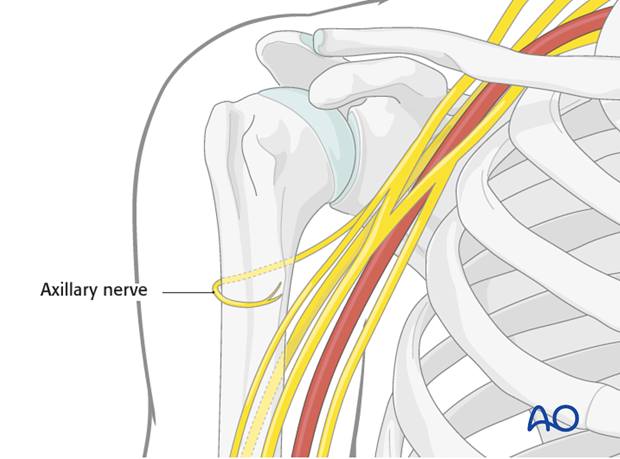
3. Anatomical landmarks
Anatomical landmarks for the superior delta split approach are:
A) The acromion
B) The major tuberosity of the humerus
C) The scapular spine
These landmarks can easily be palpated.
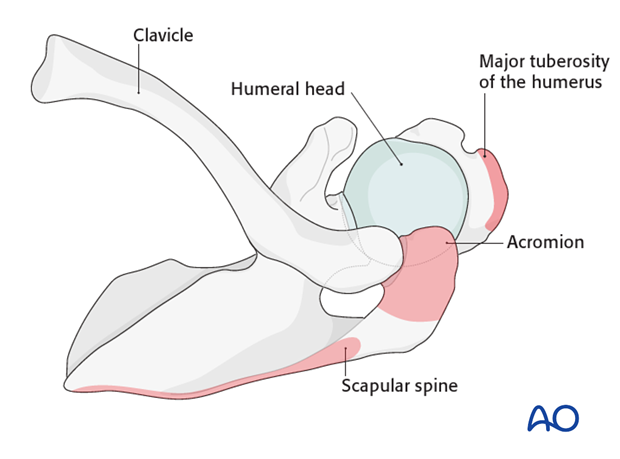
4. Skin incision
The incision starts approximately at the midpoint of the greater tuberosity and aims towards the scapular spine, crossing just posterior to the anterior tip of the acromion.
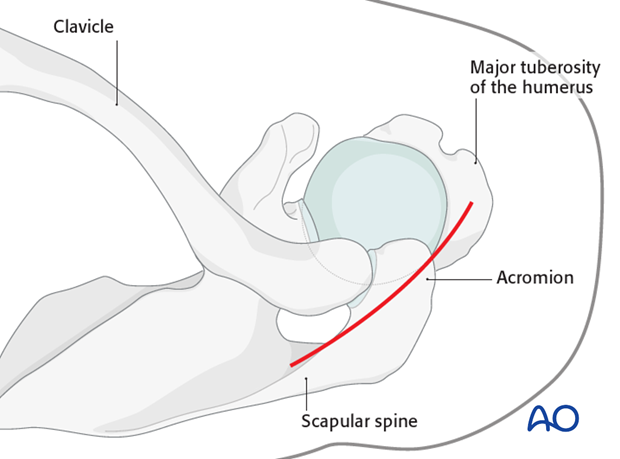
5. Exposure
The deltoid is split in the direction of its fibers. One might have to release partially the deltoid anteriorly and the trapezius posteriorly in order to expose the full extent of the fracture.

6. Wound closure
Reattach the released muscles; close in layers, close the fascia, and subcutaneous plane, and then the skin.
